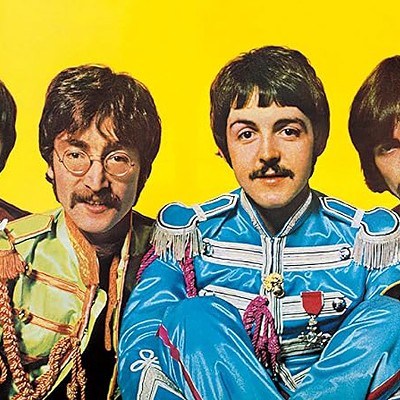It’s long been said that the trap of “exposure” for musicians comes at a huge price. And many publications (including this one) have published numerous articles on the topic of how little musicians are paid, how unfairly the industry treats them and the inhibiting changes that have occurred in the music business in the past decade.
For musicians, the very idea of exposure is the necessary payment for acquiring new fans and popularity. Without it, booking becomes improbable and gigging quality shows with premiere bands becomes impossible. And every band is looking for those opportunities to perform in front of the biggest crowds possible. That’s where festivals come into play.
While fans associate festival attendance with positive memories of music, sunny lawn seats and destination vacation visits, the experience for performers is sometimes a negative one. Judging from the comments of musicians who frequent the festival circuits, it appears the festival experience is sometimes nothing more than a promoter’s way of making money from services for which the promoter refuses to compensate.
Yet, surprisingly, not all musicians think they deserve to be paid. More than a few of the ones we interviewed felt monetary payment was not always expected or deserved.
A surprising admission because in a healthy economic system, all services performed should garner wages, and the cannibalistic attitudes of some performers toward their peers were, well, shocking. It seemed the bigger the band we spoke with (and for the record, we included two national acts), the less likely it was they felt all bands deserve to be paid. Especially the little guys.
It doesn’t end there either. Festivals, like venues, can cut into merchandise sales, demanding a significant percentage of profits from a band’s only source of revenue. Earlier this month, Orion, bassist for Behemoth, complained, proving even headliner acts are getting treated unfairly.
Promoters are often to blame. One local musician spoke to us about how smaller club festivals use promoters who stagger acts in shows based on how many tickets the band itself sells, leaving the act of promotion on the shoulders of the band, not the promotion company.
Frustrated with the lack of real hustle on the promoters' end, our source felt swindled, claiming promoters feed off the labor of the musicians who are sidetracked with making multiple pre-sale ticket deliveries instead of creating music.
Worse, according to the source, promoters will “stack 2 or 3 local [bands] on a bill that already has 4 or 5 [touring] bands. The first band has to play at 6 p.m.…the [promoter is] obviously blatant about the fact that they don't give a fuck if any new ears are exposed to that band.”
Most musicians we spoke with agreed, and one singer, who also spoke anonymously, told of questionable negotiations with 35 Denton Fest in which the promoter refused to work with their booking agent. The festival insisted the band use the online booking platform Sonicbids and agree not to be paid.
“From what I understand, if you apply to festivals through Sonicbids, it doesn't guarantee payment or really open up a dialogue about guarantees," our source told us. "35 Denton specifically told our booking agent they were going to pass on us this year, and then accepted us through Sonicbids a week later. Which my booking agent said, ‘Oh, that means they didn't want to pay you.’”
Of course, this isn’t the case with all bands. Another musician, whose experience with festivals like SXSW has been overall positive, said, “Well, we'd done SXSW for the last eight years. We would make money from unofficial shows. But also you [can] get offered money to play, [$250] but no official wristbands. Your call to turn that down or enjoy the festival.”
Why does it matter? Because Texas is home to some pretty large festivals and as bands continue to tour extensively, more festivals will happen. That same musician chalked up his good experience to making choices that were best for him and the band.
So, is it fair for festivals to expect the newer, younger, less-experienced bands to play for free? According to one musician who is part of a national act, “It is. When you're in the throes [of playing and touring] and proud of your band, it seems horribly unfair. But, honestly, if you know [what you’re really worth] and the promoter knows you're good for a certain amount of tickets, there's no reason for a zero offer, and that doesn't really happen [to bigger acts].”
In other words, you demand the worth that you prove by drawing a crowd. It’s old music business logic applied to a large festival and makes sense on many levels. But is it too much to ask that at least traveling acts get a per diem, a food voucher or gas money? At the very least, those basic living courtesies should be extended and should be part of the budget. Sadly, many bands do not get even that.
Obviously, not every musician is union-minded. That’s a shame; everyone deserves payment of some sort that isn’t as nebulous as “exposure.” On the other hand, one could argue that in a highly competitive system where rewards are given only at the top of the food chain, only the best musicians survive, but this argument falls flat when we look closely at the highest-paid musicians today.
According to Forbes, the top three grossing performers of 2015 were Katy Perry, One Direction and Garth Brooks. Talented, sure, but the most talented? Hardly. That evolutionary progression seems to have little to do with actual talent and much more to do with celebrity status and the necessity of nonstop touring.
Yet many in the industry feel like the burden of shouldering expenses belongs to musicians, not those venues, agents, promoters and record labels that surround them. Not only are there expectations to be met, but a certain decorum and behavior. Lack of respect seems to be the biggest complaint from both sides.
From our musician who reported good festival experiences: “If you can't make a couple hundred bucks at your own show, you shouldn't expect it off other people just because they're making money at a festival…Have respect for the people involved who budgeted the event months beforehand. It's disrespectful and, honestly, extremely green of you to do so.”
Seems respectful to at least offer genuine exposure by actual promotion if payment is not guaranteed. Best to read and re-read that contract and be ready to negotiate what you’re worth.
Support Us
Houston's independent source of
local news and culture
account
- Welcome,
Insider - Login
- My Account
- My Newsletters
- Contribute
- Contact Us
- Sign out
[
{
"name": "Related Stories / Support Us Combo",
"component": "11591218",
"insertPoint": "4",
"requiredCountToDisplay": "4"
},{
"name": "Air - Billboard - Inline Content",
"component": "11591214",
"insertPoint": "2/3",
"requiredCountToDisplay": "7"
},{
"name": "R1 - Beta - Mobile Only",
"component": "12287027",
"insertPoint": "8",
"requiredCountToDisplay": "8"
},{
"name": "Air - MediumRectangle - Inline Content - Mobile Display Size 2",
"component": "11591215",
"insertPoint": "12",
"requiredCountToDisplay": "12"
},{
"name": "Air - MediumRectangle - Inline Content - Mobile Display Size 2",
"component": "11591215",
"insertPoint": "4th",
"startingPoint": "16",
"requiredCountToDisplay": "12"
}
,{
"name": "RevContent - In Article",
"component": "12527128",
"insertPoint": "3/5",
"requiredCountToDisplay": "5"
}
]
KEEP THE HOUSTON PRESS FREE...
Since we started the Houston Press, it has been defined as the free, independent voice of Houston, and we'd like to keep it that way. With local media under siege, it's more important than ever for us to rally support behind funding our local journalism. You can help by participating in our "I Support" program, allowing us to keep offering readers access to our incisive coverage of local news, food and culture with no paywalls.
Trending Music
- The Way it Was: Rage Against the Machine, Evil Empire
- After Some Time on the Shelf, Jesse Dayton's Album The Hard Way Blues is Ready for Release
- Dave Wakeling Brings His English Beat to Cactus Music & Bayou Center
-
Sponsored Content From: [%sponsoredBy%]
[%title%]

Don't Miss Out
SIGN UP for the latest
Music
news, free stuff and more!
Become a member to support the independent voice of Houston
and help keep the future of the Houston Press FREE
Use of this website constitutes acceptance of our
terms of use,
our cookies policy, and our
privacy policy
The Houston Press may earn a portion of sales from products & services purchased through links on our site from our
affiliate partners.
©2024
Houston Press, LP. All rights reserved.





